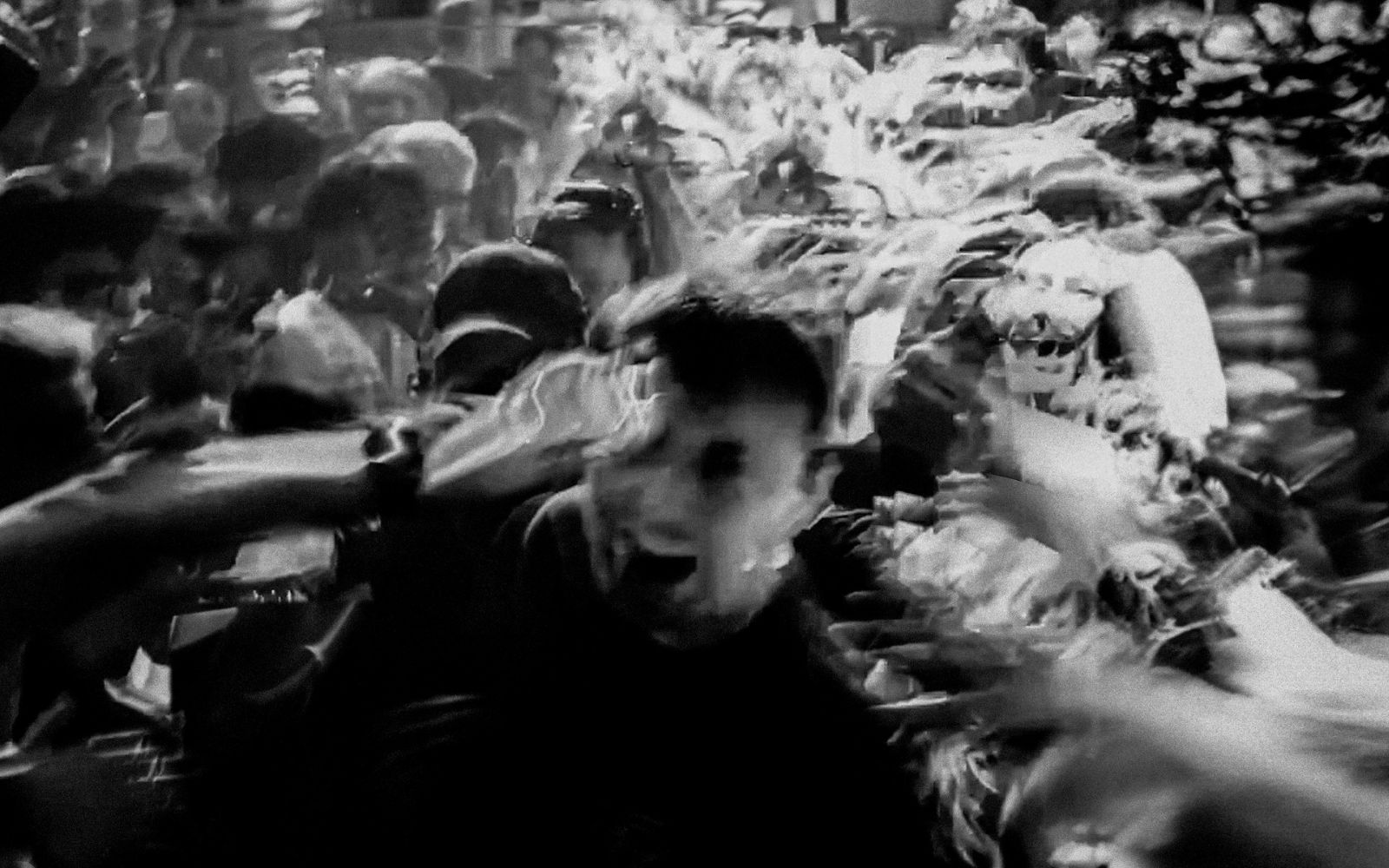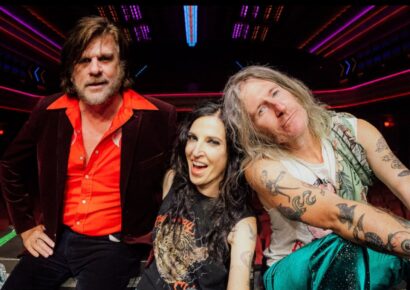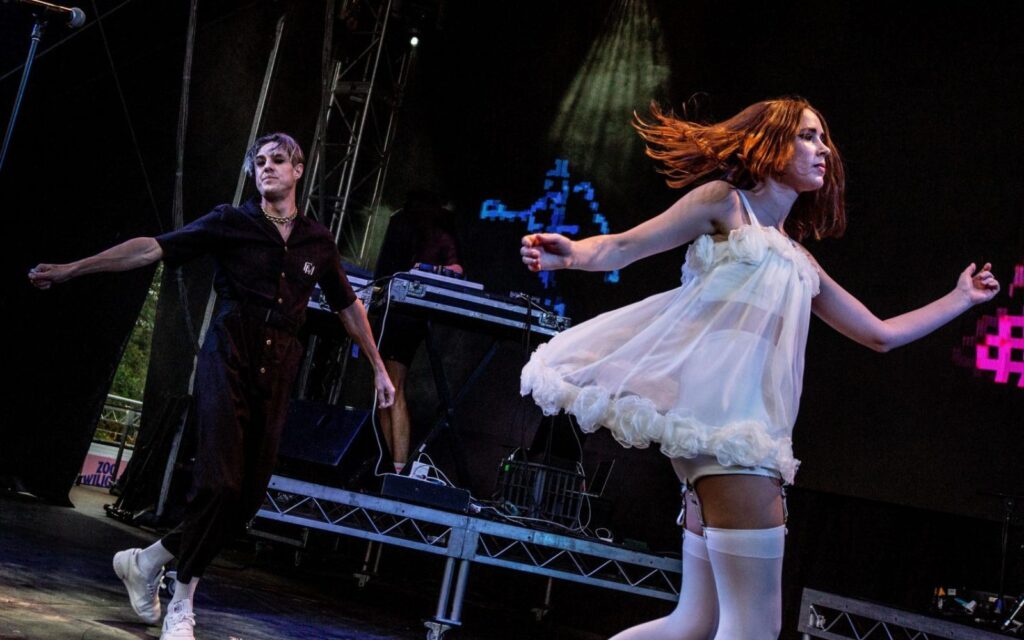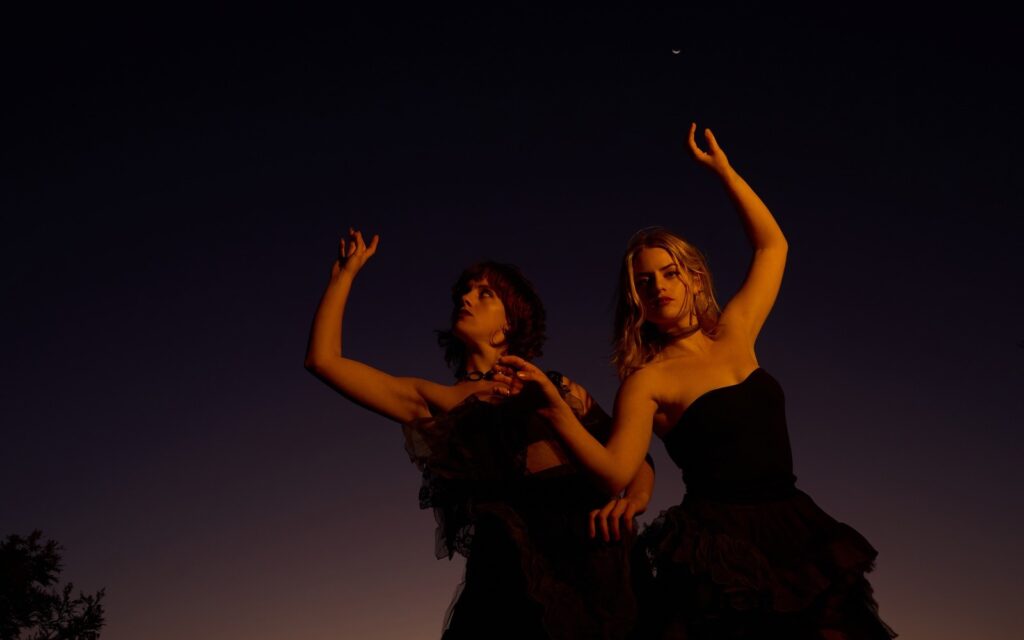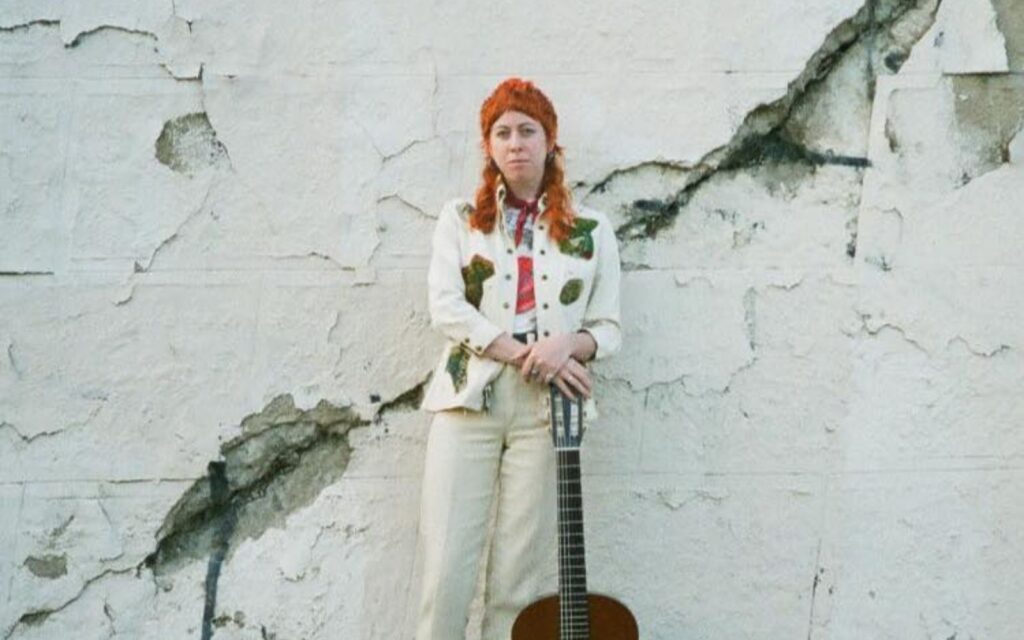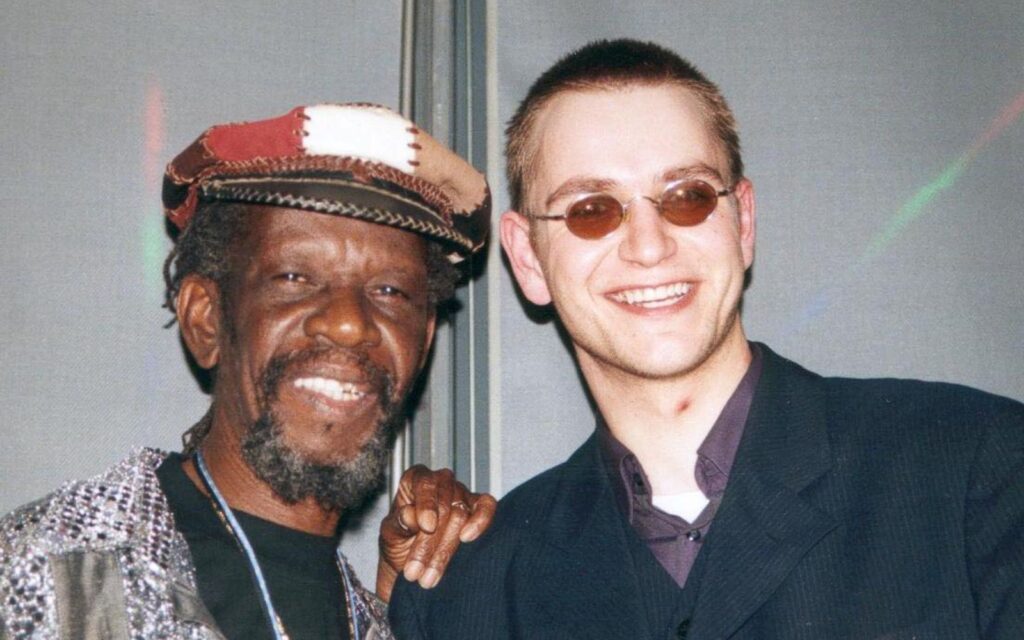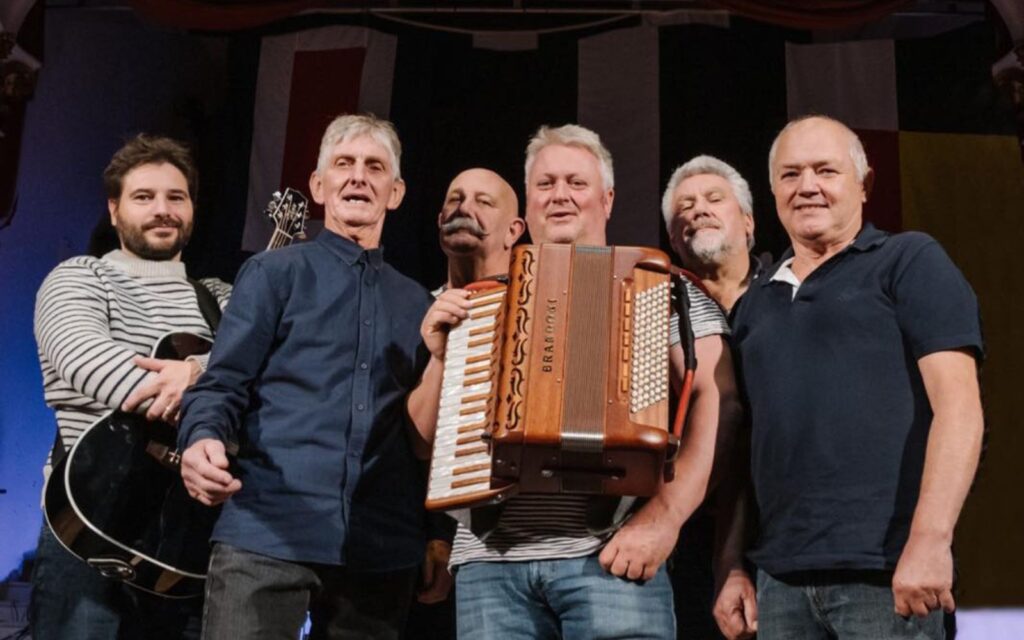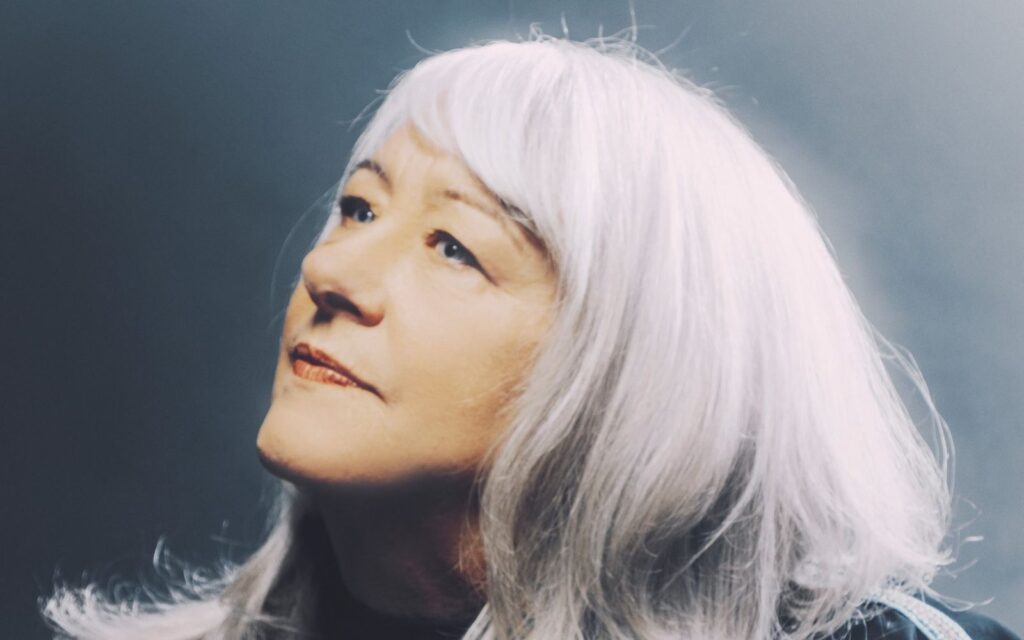Fred again.. is one of the most unique artists at the forefront of popular electronic music.
Every aspect of his discography and associated aesthetic bleeds authenticity, a perfect symbiosis for the TikTok generation that consistently claims they favour authentic forms of communication over traditional notions of being ‘cool’.
He calls his genre ‘actual life’, which while on the surface sounds like a bit of a wank, in reality, frames his recorded output as a form of autobiography. At Rod Laver Arena, he took the audience through the last four years of his life in a kind of poetic dream sequence, as sepia home videos of family, friends and collaborators splashed across a giant triptych of screens, interspersed by moments of cathartic rave and conceptual awe.
Keep up with the latest music news, features, festivals, interviews and reviews here.
That’s one of the curious things about Fred (real name: Frederick John Philip Gibson); the fact that the Fred again.. project has had such startling success essentially from the outset. He not only tapped into a mood shift away from the traditional anonymity of techno – his live sets are surprisingly hard-hitting, ranging from drum and bass to hard house – but combined this with a wide variety of vocal collaborations, from Lil Yachty to Flowdan to Angie McMahon. He also sings perfectly adequately himself and is a very talented pianist. In short, he’s the full package.
This is less surprising when you consider his upbringing. The son of a barrister and born into a heritage of aristocratic socialites, viscounts, earls and marquesses, Fred attended a private boarding school before working at Brian Eno’s studio in London. By 19, he was co-producing tracks with the Roxy Music legend, widely considered one of the most influential musicians of all time.
Eno famously described himself as a non-musician, which offers a lot of insight into Fred’s self-described ‘actual life’ – the idea of breaking with traditional recording techniques (Fred records variously on phones, snippets of everyday conversations and ambient noise) and the ethos of expanding what pop music can be.
From Eno and his collaborators, he’s gained a fearless experimentation with genre. We saw numerous sub-genres of electronic, hip-hop, pop and spoken word combine so naturally in Melbourne, glued together by sampling that manages to extract a level of emotional nuance – often through the timbre of the voice – that the mere words alone rarely deserve. It’s these intricate and layered arrangements that ultimately are the most impressive aspect of Fred’s oeuvre.
The slow tempo and heartfelt nature of Fred’s most popular songs don’t sit naturally within what many consider pop electronica. It’s that continued attempt at capturing the raw, unfiltered essence of human emotion that connects with young people en masse, in a way that defies the saturation of overly-produced hyperpop and obscene sexual lyricism that many associate with modern music.
Of course, none of this would translate to a thumping stadium show if Fred didn’t also have a knack for producing uncompromising, four-to-the-floor house music, which like all good artists, he shows in a different light during his live shows. A majority female crowd in their very early 20s provided the most energetic crowd we’ve seen at Rod Laver Arena in not-so-recent memory. It’s been a long time since we attended a show at Rod Laver where every attendee was on their feet before the artist even entered the stage, Fred noting it was the loudest crowd he’s ever played to.
The lighting and screen set-up was also formidable – the best we’ve seen since Tame Impala – with giant LED walls overhanging the crowd. As Fred transitioned into Jungle and his collab with Skrillex and Flowdan, he walked through the crowd and one of these screens lowered into a bespoke DJ booth, reminiscent of Watergate, over a central mixing desk.
Fans sang along at fever-pitch volume throughout every song and it will be exactly the same for the next two nights, as Fred sold out Rod Laver Arena three nights in a row within hours of tickets going on sale, despite offering next to zero notice for the performances.
Are the surprise pop-up shows a new modus operandi for touring artists?
As the broader industry struggles to sell tickets, will we see hyped acts announce a single show in Sydney – as Fred did – before springing a bunch of dates on us at the final minute, creating that crucial sense of urgency and social media sensationalism that we saw last week?
Given Fred’s success it’s more than likely others will try, but it’s hard to think of too many others that could deliver quite the same way.
